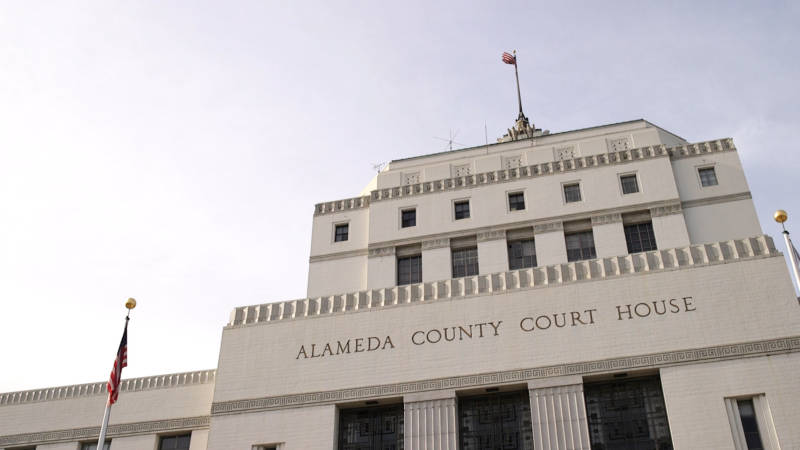But those notifications ran afoul of California’s wall of privacy protections concerning police misconduct, a state appeals court ruled in 2017.
“A lot of times, the explanation from the DA is 'we didn’t have it,'" Bazelon said.
The state Supreme Court recently directed law enforcement unions, prosecutors and other parties in the case to argue whether the new transparency law, SB 1421, affects the issue.
The records released Tuesday include hundreds of pages of interview transcripts with victims and other internal records not made public when the officers were charged.
Explorers Abuse
In 2017, San Leandro Police Officer Marco Becerra, then 26, was arrested and charged for unlawful sex with a 17-year-old girl he met through the Police Explorers program, where he was an adviser. The Explorers is a youth program for teens interested in a law enforcement career.
Criminal investigators within the San Leandro Police Department started looking into allegations made by the victim’s counselor. The investigation found that Becerra had sex with the teen at least six times in various locations that included the San Leandro Marina in his mother’s car.
They two also exchanged sexually explicit text messages in which the victim referred to Becerra as “Officer Big Bird” and “Daddy”.
Prosecutors later dropped Becerra’s charges saying the victim didn’t want to cooperate. The released records show the victim did speak with investigators and even went so far as to tape phone conversations with Becerra in which he admitted knowing her age.
Cops Involved With Sex Workers
Another record involved a former Oakland officer who told a teenage sex worker known as Celeste Guap about an undercover operation in Oakland. This was part of a wide-ranging 2016 sexual exploitation case that rocked several Bay Area police departments.
In the wake of that scandal, Oakland Officer Ryan Walterhouse was charged for his involvement with a different prostitute in the city.
The DA’s newly released documents indicate that the sex worker’s pimp told Oakland police investigators about the officer's alleged disclosures. The pimp who is referred to as “X” in the document, told police that the prostitute “has the key to the city right now.”
The documents also show Walterhouse used the Venmo app to transfer $200 to the prostitute, allegedly for oral sex.
Prosecutors ultimately dropped charges against Walterhouse after questions were raised by the defense about the witnesses’ credibility.
The other records released by the Alameda County District Attorney Tuesday included:
- A 2013 case, in which former Hayward Officer Romero Aberin pleaded no contest to a felony charge stemming from shaking down a woman he was investigating for money, after he tried to make her a confidential informant.
- A San Leandro cop, Greg Cannedy, who pulled over and stalked a woman he wanted to have sex with in 2007. Cannedy pleaded no contest to false imprisonment charges.
- Another 2007 case involving Jeffrey Cristofani, a Hayward officer who was charged for allegedly having sex with underage boys.
- A former Alameda County sheriff's deputy, Craig Records, who allegedly beat up a man at a nightclub who was trying to dance with a female friend in 2007. Records fractured the orbital bone in the man's right eye.
- Hayward Officer Jose Nunez, who pleaded no contest to false imprisonment in 2004.
This story was produced as part of the California Reporting Project, a collaboration of more than 30 newsrooms across the state to obtain and report on police misconduct and serious use-of-force records unsealed in 2019.


